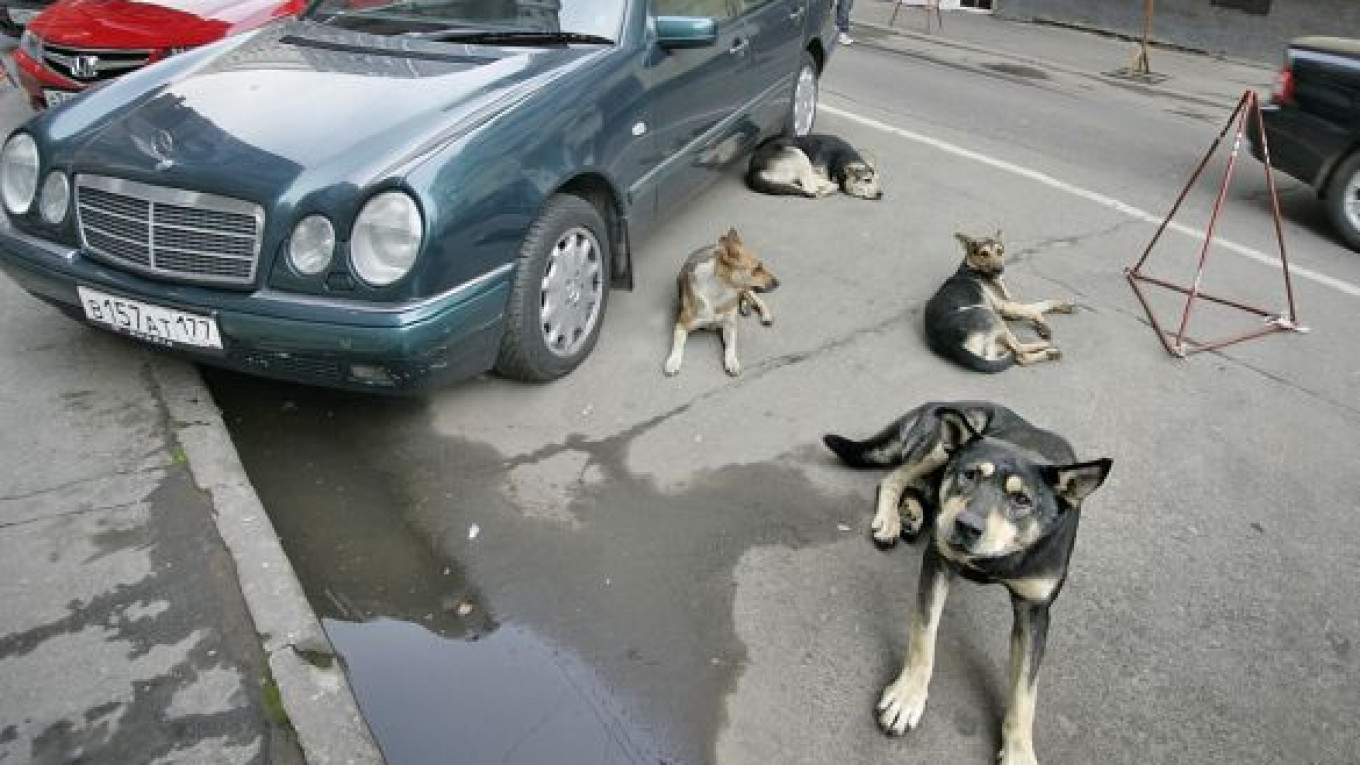BERLIN — German firms will account for a fifth of all investment brought into Russia by its new state equity fund over the next decade, despite persistent Western concerns over rampant graft and the rule of law.
The Russian Direct Investment Fund, or RDIF, set up two years ago with capital of $10 billion, has a brief to win strategic investors for co-funded projects, and its U.S.-educated chief, Kirill Dmitriev, was upbeat on the prospects for German business.
Germany, Europe's largest economy, is pivoting away from the recession-bound euro zone toward emerging markets, and is an especially inviting target for the RDIF because of its cutting-edge technology and manufacturing expertise.
"German investment will be … about a fifth of the investment we expect to bring into Russia over the next five to 10 years [via the RDIF]," Dmitriev said last week in an interview on the sidelines of an infrastructure conference in Berlin.
"Given the need for Germany to stimulate growth and its obligations as part of the EU to support other European economies, it needs to have some engines of growth, and partnership with Russia could be one," Dmitriev added.
He identified automobiles, green energy and agriculture as particularly rewarding sectors for German business, adding that Russia may soon overtake Germany as Europe's largest car market.
Bilateral trade between the two countries jumped 29 percent in 2012 from the previous year to about $100 billion, though German imports of Russian raw materials still account for much of that.
President Vladimir Putin, a fluent German speaker, will visit the annual Hanover trade fair, a major showcase of industrial technology, next month aiming to boost trade ties.
Dmitriev urged German and other Western investors to set aside politics and focus on the high returns on investment that Russia can offer.
The fund secured investments totaling $2.1 billion in 2012, $500 million from the fund itself and $1.6 billion from co-investors, Dmitriev said. He expected "much higher investment volumes this year," though he gave no estimates.
Under its business model, the RDIF can only invest if foreign investors put up at least a matching sum.
Dmitriev said the RDIF had also attracted a further $1.5 billion through long-term strategic partnerships, including with official investment agencies in China and Kuwait.
"We see sometimes people have significant misperceptions about making investments in Russia. Sometimes politics clouds pragmatic economic and business thinking," Dmitriev said.
But he acknowledged that Russia still has much to do to reassure investors that their money will be safe, singling out reform of the poor justice system as a particularly pressing issue.
High-profile cases like the jailing of former oil-tycoon Mikhail Khodorkovsy, widely seen as politically motivated, have long clouded foreign investors' perceptions of Russia.
German Chancellor Angela Merkel's trip to Moscow last year was marked by a full-blown clash over civil rights under Putin after she accused Moscow of stifling dissent.
"Courts need to be much more independent," Dmitriev said.
Russia ranks 133rd, alongside Guyana and Honduras, out of 174 states in Transparency International's 2012 Corruption Perception Index.
Central Bank chief Sergei Ignatyev said last month that almost $50 billion was sent abroad illegally last year, about 2.5 percent of gross domestic product, and that much of it was controlled by a single group of people he did not identify.
Russia is under particular international scrutiny as it chairs the Group of 20 leading nations this year and has pledged to push forward the economic forum's anti-corruption agenda.
Many economists and political analysts are skeptical about Russia's ability to clean up its own act, but Dmitriev said surveys showed more than 70 percent of those investing in Russia were happy about their decision.
The former Goldman Sachs banker, a graduate of Stanford and Harvard universities, cited as progress on the anti-corruption front a new law that will prevent senior officials holding bank accounts or stocks abroad.
A Message from The Moscow Times:
Dear readers,
We are facing unprecedented challenges. Russia's Prosecutor General's Office has designated The Moscow Times as an "undesirable" organization, criminalizing our work and putting our staff at risk of prosecution. This follows our earlier unjust labeling as a "foreign agent."
These actions are direct attempts to silence independent journalism in Russia. The authorities claim our work "discredits the decisions of the Russian leadership." We see things differently: we strive to provide accurate, unbiased reporting on Russia.
We, the journalists of The Moscow Times, refuse to be silenced. But to continue our work, we need your help.
Your support, no matter how small, makes a world of difference. If you can, please support us monthly starting from just $2. It's quick to set up, and every contribution makes a significant impact.
By supporting The Moscow Times, you're defending open, independent journalism in the face of repression. Thank you for standing with us.
Remind me later.






